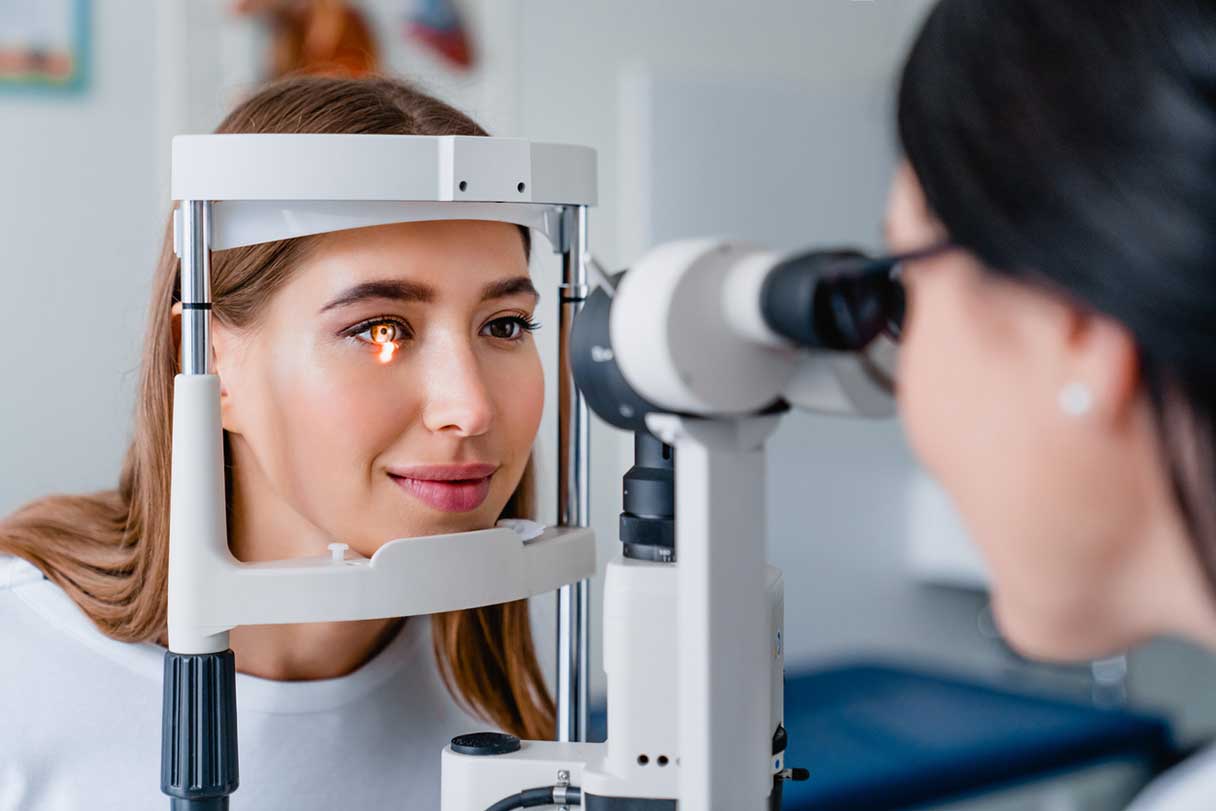If you've reached middle age, your doctor has probably recommended that you get a colonoscopy. After all, more than 40% of people over age 50 have precancerous polyps (tissue growths) in the colon, and colonoscopy screening is considered the most accurate way to detect polyps.1 Not only that, but colonoscopy screening can reduce the relative risk of getting colorectal cancer by 52% and the relative risk of dying from it by 62%.2
What Is a Colonoscopy?
A colonoscopy is a procedure done by a gastroenterologist or colorectal surgeon to determine irregularities in the colon.4 It allows the doctor to view the colon, remove any polyps and take a small piece of tissue for further analysis if necessary (biopsy).5 While colonoscopy screenings are considered the gold standard for the diagnosis of colorectal cancer,2 they can also be used to detect conditions such as Crohn's disease, ulcerative colitis and diverticulosis.6
Review these tips on preparing for a colonoscopy if you are expecting to have one soon.
How Much Does a Colonoscopy Cost?
In the U.S., the average cost for a colonoscopy is $2,750, though prices can range from $1,250 to $4,800 or more.7
The cost of a colonoscopy varies depending on the city and state in which you get the procedure.4 Note that you might have to pay more in a rural area with fewer facilities to choose from than in a city with many providers, so traveling for a colonoscopy can be a money-saving option.7
Average price ranges for a colonoscopy by location:7
| Location | Colonoscopy price range |
|---|---|
|
Atlanta, GA |
$925 to $3,000 |
|
Chicago, IL |
$1,000 to $3,300 |
|
Dallas, TX |
$950 to $3,100 |
|
Houston, TX |
$950 to $3,100 |
|
Los Angeles, CA |
$1,400 to $4,600 |
|
Miami, FL |
$1,000 to $3,300 |
|
New York, NY |
$1,100 to $3,700 |
|
Philadelphia, PA |
$1,100 to $3,500 |
|
Phoenix, AZ |
$1,000 to $3,300 |
|
Washington, D.C. |
$1,050 to $3,500 |
Colonoscopy cost by facility
A colonoscopy can be performed in either an inpatient or an outpatient facility.4 If you're concerned about cost, keep in mind that outpatient centers are just as safe as hospitals and could save you money on your medical bill.7 The national average cost for a colonoscopy is $4,350 at an inpatient facility, and $2,550 at an outpatient facility.7
Additional colonoscopy cost considerations
Consider these additional cost factors when planning your colonoscopy:
- Prescriptions. The cost of a sedative and painkiller may be added to your bill, so ask your doctor if generic medications are available to lower your cost.4 The typical cost of anesthesia/sedation is $250 or more.8
- Office costs. Consultations with your doctor before and after your colonoscopy may not be included in the total cost of your procedure.4 Typical consultation fees range between $80 and $250.8
- Bowel prep kit. You may be responsible for paying for this pre-colonoscopy kit,3 which can cost anywhere from $9 to $120.8
How Does a Colonoscopy Work?
You may not be eagerly anticipating your colonoscopy, but chances are you'll sleep right through it.5 You may be given an intravenous sedative and painkiller for the procedure,5 which takes about 30 to 60 minutes to complete.9 Here's what to expect during the procedure:
- A long, flexible tube (colonoscope) is inserted into the rectum.9
- A tiny video camera at the tip of the tube allows the doctor to look inside the colon.9
- The doctor can insert instruments through the colonoscopy to painlessly remove polyps or take a biopsy.5
While you may experience mild cramping or abdominal pressure immediately after the exam, this usually subsides within an hour or so.5
When Should I Get a Colonoscopy?
The U.S. Preventive Services Task Force recommends colonoscopy screenings every 10 years for all adults ages 45 to 75.10 But if you have a personal history of polyps or inflammatory bowel disease, or a strong family history of colorectal cancer, you may need earlier or more frequent screenings.11
What Is a Virtual Colonoscopy (CT Colonography)?12
A virtual colonoscopy is an advanced type of computed tomography (CT) scan of the colon. It doesn't require sedation, and it only takes about 10 minutes. However, it requires the same type of bowel prep as for a colonoscopy, and it needs to be done every five years instead of every 10. And if polyps or other suspicious areas are seen, a colonoscopy will still be needed to remove the polyps or to explore the area fully. Also, since virtual colonoscopy is still a fairly new procedure, insurance may not cover it.
Direct Access Colonoscopy3
A direct access colonoscopy (or open access colonoscopy) allows you to schedule a screening colonoscopy without an initial office visit and copay, which can save you time and money. Note that direct access colonoscopies are only available in participating markets to patients who qualify, and qualification is based on medical history and current medical status.
Are Colonoscopies Covered by Insurance?3
Most screening colonoscopies are covered by insurance as a preventive service under the Affordable Care Act. Between the ages of 50 and 75, you are entitled to one screening colonoscopy every 10 years. However, most insurers will not cover colon screenings before age 50.
Before you schedule a colonoscopy, it may be helpful to ask your insurance provider these questions:
- What out-of-pocket costs should I expect to pay?
- What in-network gastroenterologists are near me?
- Can you verify whether the anesthesiologist for my colonoscopy is in your network?
- What in-network facilities are near me?
- Can I save money by scheduling my procedure at an outpatient facility vs. an inpatient facility?
- If the doctor finds a polyp during my screening colonoscopy, will I have any financial responsibility?
Cost for a colonoscopy without insurance
If you don't have health insurance, you may still be able to find a colonoscopy screening option you can afford.3
- Low-cost colonoscopy. ColonoscopyAssist™ is a program that offers discounted colonoscopies in most metropolitan cities in the U.S. The flat rate, which depends on the facility selected, is either $1,075, $1,175, or $1,275.13 The Colorectal Cancer Alliance also offers low-cost or free colonoscopies to those in need nationwide.14
- Free colonoscopy. Free cancer screenings may be available through your state health department or community health center.15 In New York City, for example, the NYC Community Cares Project offers free colonoscopy screenings (including anesthesia and pathology services) to uninsured patients.16
Colonoscopy Financing Options
If you don't have insurance, you may have other options to help you finance your colonoscopy.
- Hospital/clinic payment plan. Before you schedule your colonoscopy, ask if the facility offers a payment plan with an interest rate that works for your budget.8
- Medical loan. If you have good credit, you may be able to get a personal medical loan online or from your local bank or credit union. Be sure to check the interest rate before you take out a loan for your colonoscopy.8
- Medical cost assistance program. You may be eligible for a program like Patient Assist, which offers cash-pay discounts and special financing options.17
CareCredit Financing for Colonoscopies
If you are looking for an option to help manage your medical bills, consider healthcare financing with the CareCredit credit card. The CareCredit card can help you pay for the care you want and need and make payments easy to manage.* Apply today and use our Acceptance Locator to find a provider near you that accepts CareCredit. Continue your wellness journey by downloading the CareCredit Mobile App to manage your account, find a provider on the go, and easily access the Well U hub for more great articles, podcasts, and videos.
Author Bio
Robyn Tellefsen is a freelance writer and editor with nearly 20 years of experience covering health and wellness, finance, and more. Her work has appeared on sites such as LoopNet, Beachside Rehab, First Horizon Bank, SoFi, A Place for Mom, American Express, Chase and more.








